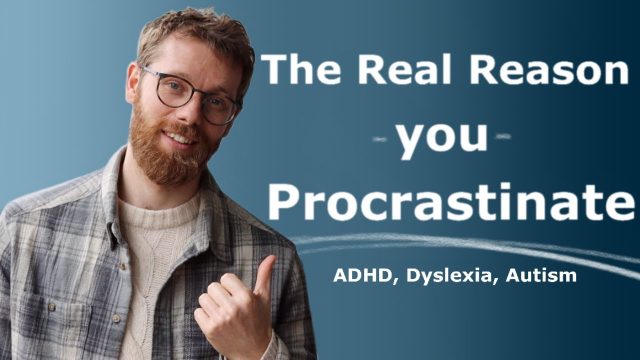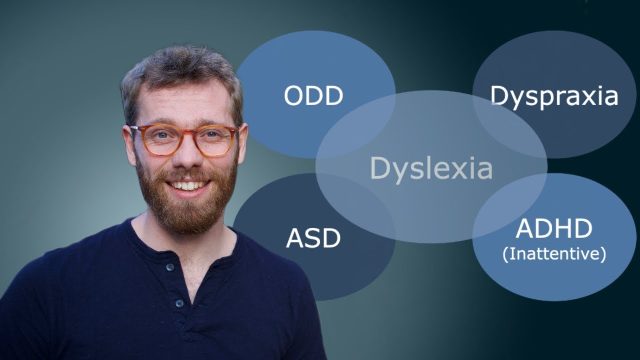Dyslexia and Emotional Intelligence

Understanding, acknowledging, and discussing the ‘emotional side’ of dyslexia is highly important in modern-day society. Sadly, this psychological component often remains missed, overlooked, and unconsidered.
In a previous blog post, in which I discussed the ‘positive elements and side to dyslexia’, I delved into the world of personality traits and touched upon how dyslexics can present with high levels of emotional intelligence, empathy, sympathy, and an awareness of others emotions. Distinguishing between empathy and sympathy, the importance of these characteristics within the neurodiverse world was strongly emphasised. Within this post, however, I wish to dive deeper into this psychological realm and explore why dyslexics may have particular strengths in this area.
Like jumping into the deep ocean, exploring one’s emotions and feelings can be complex, and somewhat mysterious. But, being able to identify, recognise, and try to understand our emotions is an excellent ability to possess. Why might a dyslexic, or member of the neurodivergent community, be highly empathetic or skilled at identifying and understanding their own and others’ emotional states? In order to answer these three main points will be explored and discussed.
Firstly, it is theorised that dyslexics may have high levels of emotional intelligence, sensitivity, and awareness of others’ emotions because they frequently experience ‘secondary symptoms of dyslexia’. These psychological symptoms that run alongside language and processing-based difficulties can include anxiety, stress, confusion, embarrassment, guilt, and possibly frustration at their own abilities/skillsets,1 Because dyslexics have increased exposure and potentially a higher proneness to these negative secondary symptoms and emotional characteristics, these individuals naturally are able to connect and understand those who also experience these emotions. For example, in order to reduce stress and worry in daily life, a dyslexic teacher may provide their dyslexic students with notes or PowerPoint slides for their lessons. Or a dyslexic child, adolescent, or adult may share coping strategies and ‘dyslexic life hacks’ around spelling, reading, or memory strategies with their dyslexic friends, peers, or colleagues. Ultimately, this provides an excellent framework and grassroots for building mutually meaningful and trusting relationships with others.

Emotional intelligence is a term regularly heard. Its true meaning surrounds an individual being able to recognise, appreciate, and comprehend the emotions and feelings of both themselves and others. Crucially, this involves high levels of self-awareness and social-emotional skill. Linked to the abilities of sympathy (being able to understand another’s emotions) and empathy, (in which an individual can place themselves in another person’s shoes or position) these skills can help reduce stress, improve effective communication with others and negate conflict in social situations. 2 Interestingly, as dyslexics often have first-hand first-person experiences of facing difficult tasks, potentially troublesome daily activities, and dealing with the secondary impacts of dyslexia they are excellently poised to assist others in a similar position to themselves. In this way, a neurodiverse individual may not like to observe and witness another person struggle with particular tasks or situations.
Moreover, due to their experiences of being dyslexic and finding some tasks particularly challenging and stress inducing many dyslexics may often feel ‘different’ or like an outsider compared to their peers. Although at first glance this may seem to appear as a negative feature, due to this dyslexics can develop a strong sense of justice, community spirit, or belongingness with others within the neurodiverse population.3 This stems from an innate and natural human drive of wishing to connect with those who are similar to ourselves and assist those who share the same concerns, struggles, interests, and/or personality traits and characteristics. These notions of wishing to build connections with alike others, alongside aforementioned empathic abilities, also relate to the concept and moral principle of altruism. Better known as ‘helping behaviour’ as well as showing care and concern for others, altruistic behaviours also form a vital part of being emotionally intelligent and aware of others.
Emotional intelligence and ‘emotional awareness’ can be a great skill and strength found amongst many dyslexics. This highly desirable trait lies within the psychological and emotional realm of dyslexia; of which often lays forgotten. Nonetheless and despite this, having an excellent awareness and understanding of both others and one’s own emotions in combination with altruistic tendencies remains a vital cog for building successful meaningful relationships.
References
- Aston, P (2016). The Emotional Repercussions of Dyslexia .
- Discussing The Dyslexic Brain (2018). Putting a Positive Spin on Dyslexia ,
- LoGiudice, K. (2008). Common Characteristics of Adult Dyslexia.









